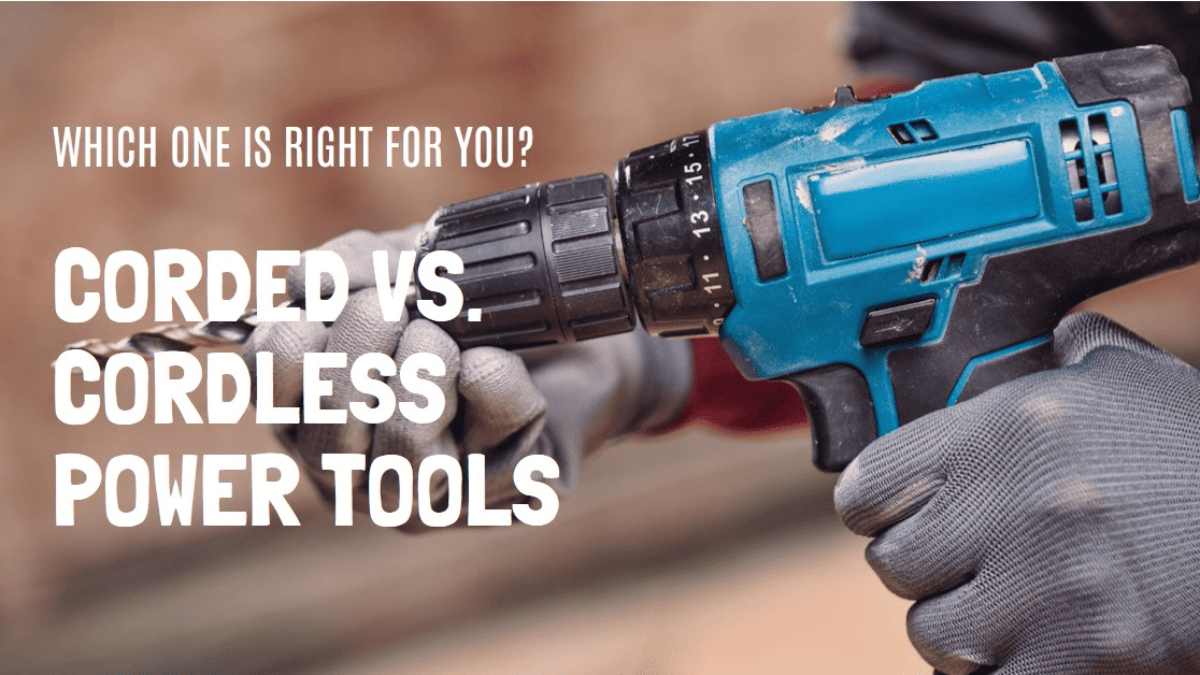Introduction
When it comes to choosing power tools for your projects, one of the primary decisions you’ll face is whether to opt for corded or cordless models. Both types have their own set of advantages and disadvantages, and understanding the differences between them can help you make an informed decision. In this comparison guide, we’ll explore the pros and cons of corded and cordless power tools to help you determine which option is right for you.
Corded Power Tools
Advantages
- Unlimited Power: Corded power tools are typically more powerful than their cordless counterparts, making them ideal for heavy-duty tasks that require sustained power.
- Consistent Performance: Since they’re powered by electricity, corded tools maintain a consistent level of performance throughout use, without the need for recharging.
- Cost-Effectiveness: Corded tools tend to be more affordable upfront, as they don’t require the purchase of batteries and chargers.
Disadvantages
- Limited Mobility: The primary drawback of corded tools is their reliance on an electrical outlet, which restricts mobility and can be inconvenient when working in remote or outdoor locations.
- Cord Management: Dealing with cords can be cumbersome, requiring careful management to prevent tangling or tripping hazards.
Cordless Power Tools
Advantages
- Portability: Cordless power tools offer unmatched portability and flexibility, allowing you to work freely without being tethered to a power source. This makes them ideal for jobs where mobility is essential.
- Convenience: With no cords to contend with, cordless tools are easy to maneuver and use in tight spaces or overhead applications.
- Versatility: Advances in battery technology have made cordless tools increasingly powerful and capable of handling a wide range of tasks.
Disadvantages
- Limited Battery Life: One of the main drawbacks of cordless tools is their reliance on batteries, which have a limited runtime and require recharging.
- Higher Cost: Cordless tools tend to be more expensive upfront due to the cost of batteries and chargers. Additionally, replacing batteries can be an ongoing expense over time.
Comparison Factors
When deciding between corded and cordless power tools, several factors should be considered:
- Power and Performance: Corded tools typically offer more power and consistent performance, while cordless tools provide greater portability and convenience.
- Portability: Cordless tools excel in terms of portability and flexibility, allowing you to work in a variety of locations without being tethered to an outlet.
- Convenience: Cordless tools are more convenient to use, especially for quick jobs or tasks where mobility is essential.
- Cost: Corded tools are generally more affordable upfront, but cordless tools may offer greater long-term savings in terms of time and convenience.
Which is Right for You?
Ultimately, the decision between corded and cordless power tools depends on your specific needs and preferences. If you prioritize power and performance for heavy-duty tasks, corded tools may be the best option. However, if portability and convenience are more important, cordless tools offer unmatched flexibility.
Conclusion
Choosing between corded and cordless power tools is a personal decision that depends on a variety of factors, including the nature of your projects, your workspace, and your budget. By weighing the advantages and disadvantages of each option, you can select the tools that best suit your needs and preferences.
FAQs
- Are corded power tools more powerful than cordless ones?
- Generally, yes. Corded tools tend to offer higher power levels and consistent performance.
- Do cordless power tools come with batteries and chargers?
- Yes, most cordless tools are sold as kits that include batteries and chargers.
- How long do cordless tool batteries typically last?
- Battery life varies depending on the tool and usage, but most modern cordless tool batteries offer sufficient runtime for most tasks.
- Can I use cordless power tools for heavy-duty projects?
- Yes, many cordless tools are capable of handling heavy-duty tasks, but corded tools may be better suited for prolonged use.
- Are cordless power tools more expensive than corded ones?
- Yes, cordless tools tend to be more expensive upfront due to the cost of batteries and chargers.



Add a Comment